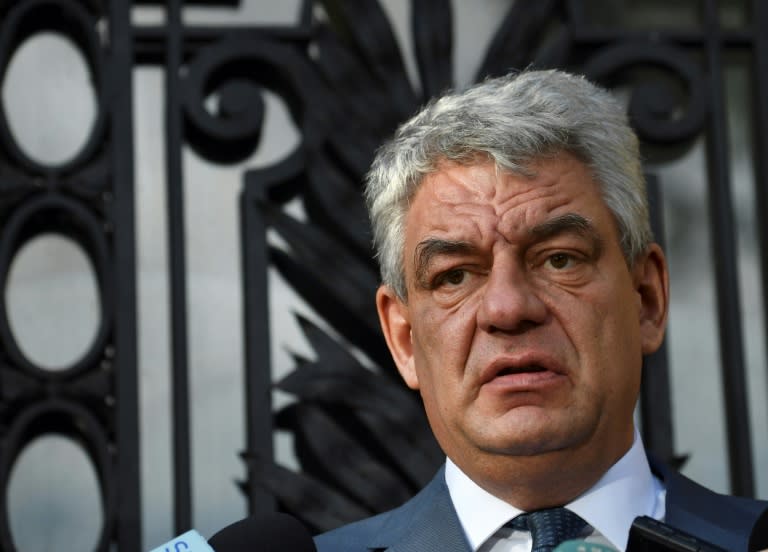Romania looks for third PM in seven months

Romania's ruling Social Democrats met Tuesday to nominate a new prime minister after power struggles within the party forced out the impoverished EU country's second premier in seven months. This latest crisis also prompted Japan's visiting Prime Minister Shinzo Abe, on the final stop of a European tour, to cancel talks on Tuesday with the Romanian government, Romanian officials said. Abe, who arrived in Bucharest late morning on the first ever visit to Romania by a Japanese premier, was due however to meet with Romanian President Klaus Iohannis. Prime Minister Mihai Tudose, 50, announced his resignation late Monday after senior members of the Social Democratic Party (PSD) voted to withdraw their support. Last June, the party filed a no-confidence motion in then-prime minister Sorin Grindeanu, after he fell out with the powerful head of the PSD, Liviu Dragnea. Dragnea, 55, is barred from public office due to an electoral fraud conviction but is widely seen as pulling the strings behind the scenes. Dragnea said Monday he had "made two bad choices" for prime minister, adding that he would not make the same "mistake". On Tuesday Iohannis formally accepted Tudose's resignation and put forward Mihai Fifor, defence minister, as interim prime minister. "We need a new government quickly so that this period of uncertainty doesn't translate into political instability," Iohannis said, adding that he was "unhappy and concerned". The centre-right head of state and fierce PSD critic will also need to approve the PSD's new prime ministerial nominee. On Wednesday he will begin talks with all political parties. The PSD returned to power in December 2016 after a thumping election victory, promising to boost wages and pensions and to slash taxes, but almost immediately hit problems. In February 2017, the government backed down on altering anti-corruption laws that would have let politicians off the hook after the biggest protests since the ouster of communist dictator Nicolae Ceausescu in 1989. Fresh demonstrations have also greeted other legislation that critics -- including Brussels and Washington -- worry will weaken the battle against rampant corruption. That legislation has passed through both houses of parliament and needs to be approved by the president. Economic growth has been one of the strongest in the European Union, meanwhile, expanding at an annual rate of almost nine percent in the third quarter.

